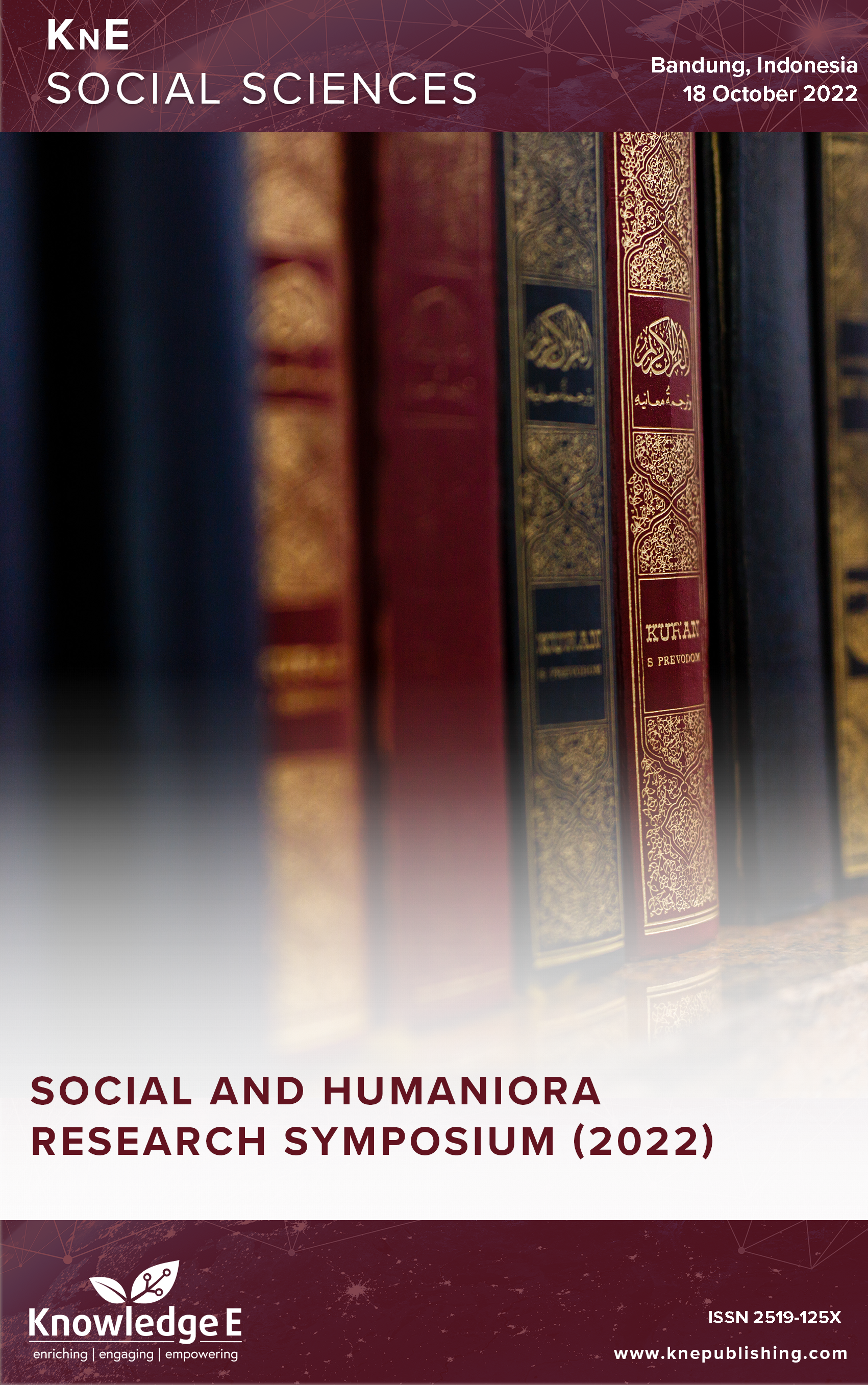Implementation of Parenting Program in Early Children Education in Bandung
DOI:
https://doi.org/10.18502/kss.v8i18.14263Abstract
The implementation of parenting activities in kindergarten (TK) and early childhood education (PAUD) is currently increasing. Each school competes to carry out parenting training activities. The issuance of Regulation of the Minister of Education and Culture of the Republic of Indonesia No. 2 of 2018 concerning technical guidelines for the use of non-physical special allocation funds for early childhood education operational assistance (BOP) has strengthened the widespread implementation of parenting activities. In one of the BOP financing components, it is stated that the funds must be used in meeting with parents/parenting activities with a maximum budget ceiling of 50%. As a continuation of previous research, this year’s study aims to conduct a study of school demographics on parenting activities for early childhood education in the city of Bandung. The research method used descriptive study. The results showed that education parenting programs have been implemented in 41 preschools; however, in practice, there are still many obstacles, especially related to the use of need-assessment parenting programs.
Keywords: parenting, early children, implementation program
References
[2] Republik Indonesia P. Peraturan Pemerintah (PP) tentang Standar Pelayanan Minimal. Indonesia: https://peraturan.bpk.go.id/Home/Details/67029/pp-no-2-tahun- 2018, 2018.
[3] Khambali K. Family role in shaping character Islam in early childhood through habituation method. Ta’dib: Jurnal Pendidikan Islam. 2017;6(1):155–63.
[4] Masnipal M. Kontribusi Pelatihan dalam Meningkatkan Keterampilan Guru Membimbing Siswa Bermain Balok. J Obs J Pendidik Anak Usia Dini. 2021;6(3):1514–1526.
[5] Sutopo AH, Dewi HI, Antar Y, Asmawati L, Agustian M, Khadijah S. Pemikiran Pendidikan Prof. Dr. Conny R. Semiawan. Topazart; 2022.
[6] Semiawan CR. Kreativitas keberbakatan: mengapa, apa, dan bagaimana. Jakarta: Indeks; 2009.
[7] Morrison GS. Dasar-dasar pendidikan anak usia dini (PAUD). Jakarta: Indeks; 2012.
[8] Sunarti E. Mengasuh dengan hati. Elex Media Komputindo; 2004.
[9] Jeong J, Pitchik HO, Yousafzai AK. Stimulation interventions and parenting in low-and middle-income countries: a meta-analysis. Pediatrics. 2018 Apr;141(4):e20173510.
[10] Tomlinson HB, Andina S. “Parenting education in Indonesia: Review and recommendations to strengthen programs and systems,” 2015. https://doi.org/10.1596/978-1- 4648-0621-6.
[11] Mejia A, Calam R, Sanders MR. A review of parenting programs in developing countries: opportunities and challenges for preventing emotional and behavioral difficulties in children. Clin Child Fam Psychol Rev. 2012 Jun;15(2):163–175.
[12] Eshel N, Daelmans B, de Mello MC, Martines J. Responsive parenting: interventions and outcomes. Bull World Health Organ. 2006 Dec;84(12):991–998.
[13] Enoh E, Afrianti N, Masnipal M, Meuraxa P, Nurtsani P. “Implementation of the parenting program in early childhood education in Bandung,” in 4th Social and Humanities Research Symposium (SoRes 2021), Atlantis Press, 2022, pp. 456–460.
[14] Huang GH, Gove M. Asian parenting styles and academic achievement: Views from eastern and western perspectives. Education (Chula Vista). 2015;135(3):389–97.
[15] Azni HNP, Nugraha S. “Hubungan social support dengan parenting stress pada ibu dengan anak tunagrahita di SLB-C Z Bandung,” 2019.
[16] Bensaid B. An overview of Muslim spiritual parenting. Religions (Basel). 2021;12(12):1057.
[17] Zen AR, Zalnur M, Munawir K, Pratiwi Y, Rambe AA. Parenting Model and the Effects Toward Children’s Akhlaq: An Ethnographic Study of Coastal Community in Padang West Sumatera. International Journal of Islamic Studies Higher Education. 2022;1(1):30–41.
[18] Setyawan AD, Trisharsiwi T, Al Masjid A, Cahyandaru P, Agustina DA. Peran guru dalam penanaman karakter siswa melalui ajaran Trilogi Kepemimpinan di SD Negeri 03 Bongas. Trihayu: Jurnal Pendidikan Ke-SD-an. 2022;9(1):72–8.
[19] Agus C, Cahyanti PA, Widodo B, Yulia Y, Rochmiyati S. “Cultural-based education of Tamansiswa as a locomotive of Indonesian education system,” Universities as Living Labs for Sustainable Development: Supporting the Implementation of the Sustainable Development Goals, pp. 471–486, 2020. https://doi.org/10.1007/978-3- 030-15604-6_29.
[20] Zubairi A, Rose P. Bright and Early: How financing pre-primary education gives every child a fair start in life. University of Cambridge; 2017.
[21] Musyarri FA. “ANOTASI ATAS PERATURAN PRESIDEN NOMOR 87 TAHUN 2017 TENTANG PENGUATAN PENDIDIKAN KARAKTER ANNOTATION OF PRESIDENTIAREGULATION NO. 87 OF 2017 ON STRENGTHENING CHARACTER EDUCATION,” Jurnal Hukum Lex Generalis, vol. 1, no. 7, 2020, Accessed: May 26, 2023. [Online]. Available: https://media.neliti.com/media/publications/459942-none-bc2e95dd.pdf

